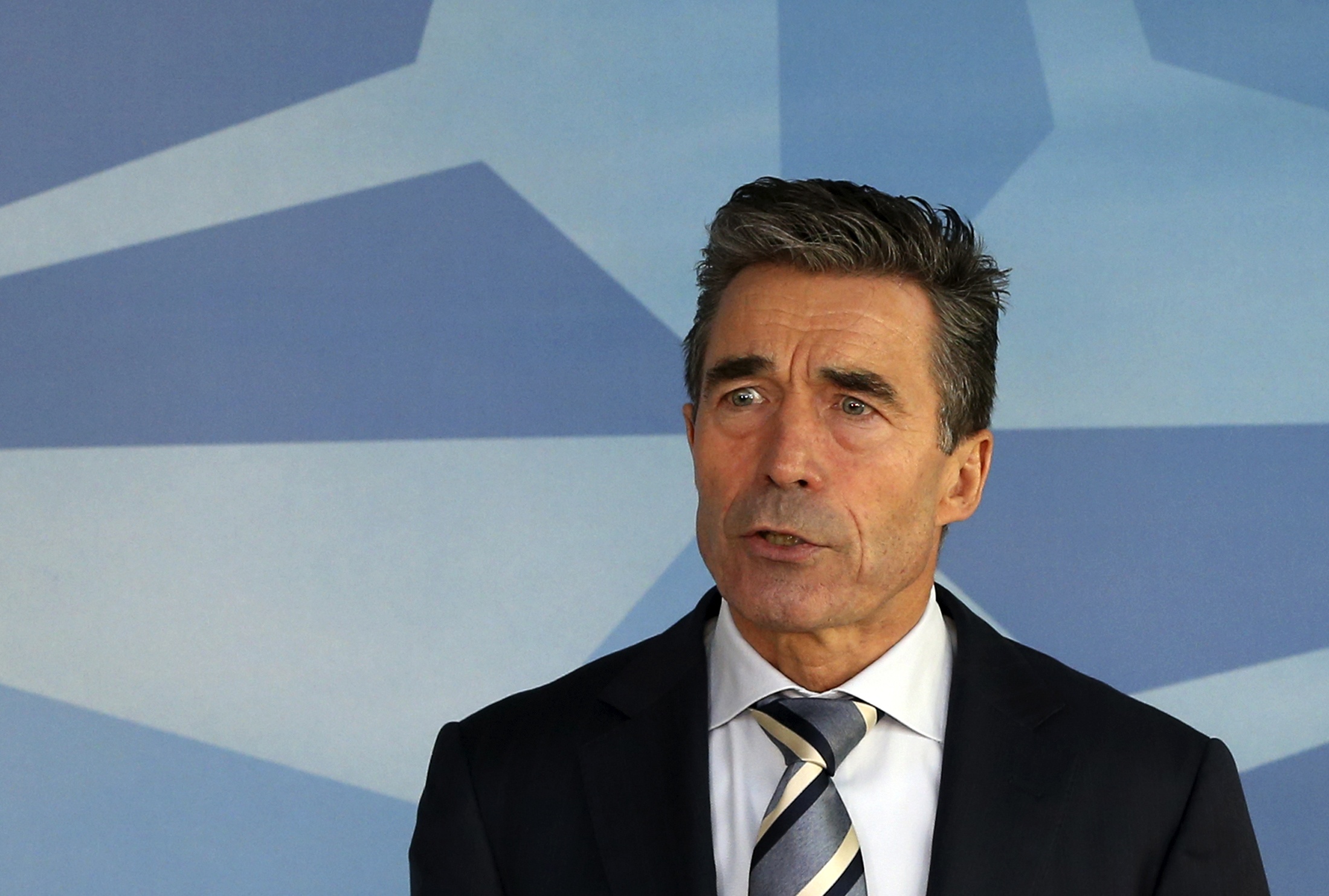BRUSSELS – NATO's chief warned that Europe's peace and security were at risk from Russia as he opened crisis talks Sunday to forge a joint response to Moscow's threats of military intervention in Ukraine.
"What Russia is doing now in Ukraine... threatens peace and security in Europe. Russia must stop its military activities," Anders Fogh Rasmussen said in a brief statement before going into talks with the alliance's 28 ambassadors.
Speaking as Ukraine's interim authorities accused Russia of setting off "a red alert" with what was "actually a declaration of war", Rasmussen said he had convened the North Atlantic Council "because of President Putin's threats against this sovereign nation."
"Today we will discuss the implications for European security."
Held only four days after NATO defence ministers gathered in Brussels to warn Russia – apparently with little effect – not to take steps that could be "misinterpreted", Sunday's closed-door talks come as escalating tension in Crimea threatens to open the West's worst crisis with Moscow since Cold War days.
The meeting was called on requests notably from Ukraine neighbour Poland and from Lithuania, which due to Russia's decision to deploy forces in Crimea, invoked Article 4 of the North Atlantic Treaty, the alliance's founding document.
Article 4, most recently used by Turkey over Syria, enables a member state to call a NATO meeting for consultations if its independence or security are under threat.
It has rarely been used and sends a strong political symbol to the wider world that NATO is concerned, though the signal is far weaker than invoking article 5 – the "one-for-all and all-for-one" article stating that attack against one member is an attack against them all.
Ukraine signed up to a partnership deal with NATO in 1997 but is not a full member. It was given the nod to eventually join at a 2008 summit in a move that infuriated Russia.
Two years later, the country's now ousted pro-Russian leader, Viktor Yanokovych, put paid to its bid to formally join.
Upping the military stakes
Diplomats said little more than a statement of concern was expected from the talks, held on the eve of an emergency EU foreign ministers' meeting in Brussels and amid talk of a possible extraordinary European Union summit next week.
Moreover, members of the North Atlantic Treaty Organisation appear divided over what stand to take on the tug-of-war with Russia over Ukraine, with former Soviet satellites far more hawkish than some.
"No one seriously believes there will be a military response," said a diplomat from one of the larger members who asked not to be identified.
Another source said some nations were more favourable to UN or bilateral pressure as "waving the NATO flag" could be counter-productive, upping the military stakes instead of de-escalating the tension.
"This is perhaps the most dangerous point in Europe's history since the end of the Cold War," said Dmitri Trenin of the Carnegie Institute.
As Ukraine called up all its military reservists and pro-Kremlin forces seized control of key government buildings and airports in the mainly Russian-speaking Crimean peninsula, the West put the accent on diplomatic pressure.
Britain and France joined the United States and Canada in threatening to boycott a June G8 summit to be hosted by President Vladimir Putin in the Russian Black Sea resort of Sochi.
"Russia is traditionally our friend. We want a traditional friend far more than sabre-rattling," said French Foreign Minister Laurent Fabius.
Both Fabius and Britain's Foreign Secretary William Hague urged the Ukrainians and Russians to engage in direct talks over the crisis, and failing that to communicate through organisations such as the UN.
"If Putin stops now, he can have both: annexation of Crimea and good relations with west," tweeted Uli Speck, also a Carnegie analyst.
























































